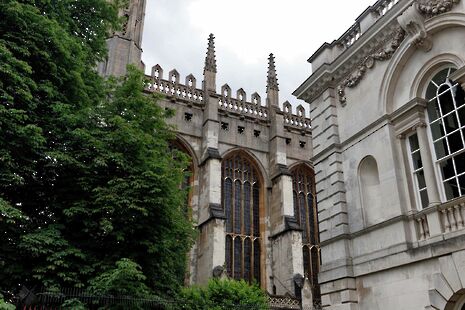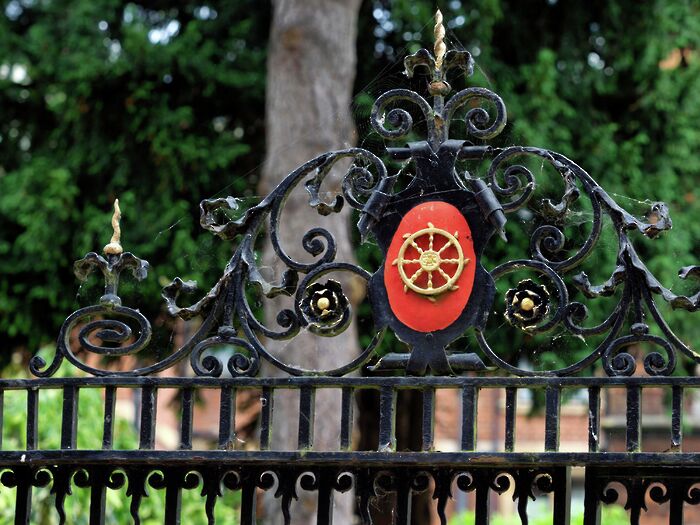Second open letter sets out demands for slavery inquiry advisory group
CUSU’s BME, Disabled Students’, Class Act, and Women’s campaigns, as well as Zero Carbon and Cambridge Defend Education are among its signatories

An open letter penned by a student and faculty working group has called for the advisory group set to oversee the University’s inquiry into its links to the slave trade to appoint at least one scholar of transatlantic slavery to its panel, and to expand its remit to include the University’s constituent colleges.
The letter, published in response to Vice Chancellor Stephen Toope’s blog post regarding the directions of the slavery inquiry advisory group, has at the time of writing garnered 90 signatures. Among its signatories are CUSU’s BME, Disabled Students’, Class Act and Women’s campaigns, as well as Cambridge Zero Carbon Society and Cambridge Defend Education.
It was announced on 30th April that the University was launching an inquiry into its historic links to the slave trade, with the inquiry set to be overseen by a specially commissioned advisory group. An open letter was then launched, criticising the absence of college involvement in the inquiry.
In a blog post on 13th May, Vice Chancellor Stephen Toope discussed the directions and rationale of the slavery inquiry. He clarified that the role of the advisory group will be to “set the parameters of the research” and to recruit the postdoctoral researchers who will be carrying out the inquiry.
He emphasised that the group will be “consulting widely and collaborating with experts across the entire collegiate University, and indeed with experts from other institutions’. In deciding how best to publicly acknowledge the inquiry’s findings, Toope noted that the group would “engage with the broadest possible range of interests, from our student groups and our Race Equality Champions to University Societies such as the Black Cantabs Society and the African Caribbean Society” and hold town forums.
The letter says of Toope’s blog post: “While we appreciate the Vice Chancellor’s clarification on the need for the Inquiry, the statement does not go far enough”, and goes on to outline the working group’s concerns and its ten recommendations for the advisory group.
A university spokesperson told Varsity that “this initiative is in its early stages. The advisory group will draw widely on existing expertise within and beyond the University. As part of that process, it will be convening consultative meetings at which staff and students will be invited to contribute.”
The composition of the working group comes under scrutiny in the letter. Only one historian sits on the panel, and the letter argues that it is “widely comprised of non-specialists.”
“This lack of specialists is troubling,” it notes, given that “there are a number of fellows studying different aspects of transatlantic slavery currently employed by the University”
“Equally troubling is the lack of senior black faculty members on the panel.” While the letter acknowledges that “the difficulty in representing black fellows arises from a chronic shortage of permanent black faculty across the University,” it maintains that “the situation as it stands is completely unacceptable, particularly given that there are slavery specialists among the black alumni community who could be invited to join the Advisory Group with relative ease.”
In its list of recommendations, the working group calls for the appointment of “at least one scholar of transatlantic slavery” and “one person external to the University” as full members of the advisory group panel.
It also demands that the University’s 31 constituent colleges are brought under the remit of the advisory group, and that the colleges are offered a simple process by which to declare their commitment to the inquiry.
The letter raises its concern for the lack of clarity concerning the involvement of colleges prior to the inquiry’s announcement late last month, particularly whether or not colleges were invited to take part in the inquiry.
Arguing that the two-year time frame of the inquiry is “by no means a reasonable timescale to undertake research of this nature”, the working group calls for clarification of “whether the Legacies of Slavery Inquiry is the first step in a series of steps, and whether it intends to make reparative justice a key part of its agenda.”
Accountability and transparency are central to the letter’s demands. As well as calling for the advisory group to make public how its eight core members were appointed, its budget, and its structure of accountability, it demands that the hiring process of the post-doctoral researchers be made public.
“This should include analysis of positive discrimination hiring practices, conscious and unconscious bias in selecting candidates, and models for career progression.”
 News / Eight Cambridge researchers awarded €17m in ERC research grants27 December 2025
News / Eight Cambridge researchers awarded €17m in ERC research grants27 December 2025 News / Downing investigates ‘mysterious’ underground burial vault 29 December 2025
News / Downing investigates ‘mysterious’ underground burial vault 29 December 2025 Lifestyle / Ask Auntie Alice29 December 2025
Lifestyle / Ask Auntie Alice29 December 2025 Sport / Hard work, heartbreak and hope: international gymnast Maddie Marshall’s journey 29 December 2025
Sport / Hard work, heartbreak and hope: international gymnast Maddie Marshall’s journey 29 December 2025 Interviews / Meet Juan Michel, Cambridge’s multilingual musician29 December 2025
Interviews / Meet Juan Michel, Cambridge’s multilingual musician29 December 2025








